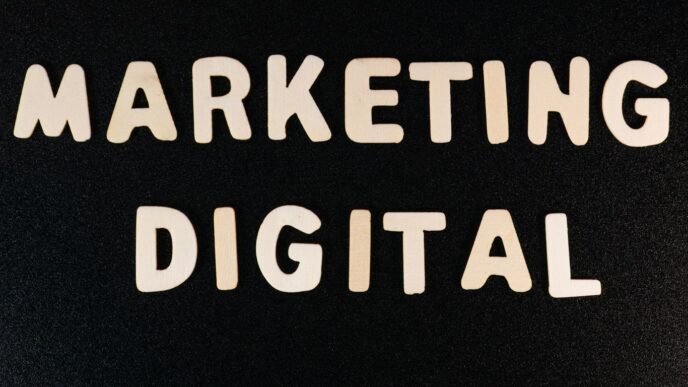Trying to get ahead in your career? It’s not just about doing your current job well anymore. The workplace is always changing, and to move up, you need a mix of skills. We’re talking about the 10 key skills that really make a difference. Think of it like building a toolkit – the more tools you have, the more you can handle. This article breaks down those important abilities that employers are looking for, helping you stand out and grab those promotion opportunities.
Key Takeaways
- Adaptability means being open to new ways of doing things and not getting stuck in old habits.
- Good communication, both written and spoken, helps build relationships and makes sure everyone knows what’s expected.
- Teamwork is important because success often comes from people working together towards a common goal.
- Continuous learning shows you’re keeping up with industry changes and are ready to take on new challenges.
- Developing skills like leadership, problem-solving, and networking can significantly boost your career path.
Adaptability
The world of work is always changing, right? One minute you’re doing things one way, and the next, a new tool or process pops up that changes everything. That’s where adaptability comes in. It’s not just about going with the flow; it’s about actively adjusting to new situations and figuring out how to make them work for you and your job.
Think about it: if you’re stuck doing things the old-fashioned way, you’re probably going to get left behind. Companies are always looking for people who can roll with the punches and learn new things quickly. This means being open to new ideas, even if they seem a little weird at first.
Here’s what being adaptable really looks like:
- Being open to new tech: You don’t have to be a coding genius, but being willing to learn and use new software or digital tools makes a big difference. If your company switches to a new project management system, jump in and learn it.
- Handling unexpected changes: Projects get shifted, deadlines move, and sometimes priorities change overnight. Adaptable people don’t freak out; they figure out a new plan.
- Learning from different perspectives: Sometimes, a new approach comes from someone else on the team. Being adaptable means listening to those ideas and considering them, even if they’re different from your own.
Being adaptable means you’re ready for whatever comes next. It shows you’re not afraid of change and can keep moving forward, which is exactly what employers want to see when they’re thinking about promotions or new opportunities.
Problem Solving Skills
Okay, so let’s talk about problem-solving. It sounds pretty straightforward, right? You’ve got an issue, you figure out a way to fix it. But in the workplace, it’s often way more involved than just tinkering with something until it works. It’s about looking at a situation, really understanding what’s going on, and then coming up with a plan that actually makes things better.
Think about it: every job, no matter how simple or complex, throws curveballs. Your boss might need a report yesterday, a client might be unhappy, or a project might hit a snag. Being good at figuring these things out is a huge deal for your career. It shows you can handle pressure and that you’re not just going to freeze up when things get tough.
Here’s a bit of a breakdown on how to get better at this:
- Identify the real issue: Sometimes what looks like the problem isn’t the actual root cause. You need to dig a little deeper. Ask "why?" a few times, like you’re talking to a kid. It helps get to the bottom of things.
- Brainstorm solutions: Don’t just jump on the first idea. Think of a few different ways you could tackle the problem. Even if some ideas seem a bit out there at first, write them down. You never know where a good solution might come from.
- Pick the best path and act: Once you have a few options, figure out which one makes the most sense. Consider what resources you have, how much time it will take, and what the potential outcomes are. Then, go for it!
- Review what happened: After you’ve tried to solve it, take a moment to see if it worked. What did you learn? Could you have done it differently? This part is super important for getting better next time.
Developing these skills isn’t just about fixing things when they break. It’s about being proactive and making things run smoother overall. It’s a skill that employers really look for because it means you can be counted on. If you’re looking to improve your ability to tackle challenges, there are plenty of resources out there to help you develop and enhance them.
Communication Skills
Being able to get your point across clearly is a big deal in any job. It’s not just about talking, though. You’ve got to be good at writing emails, reports, and even just chatting with people on Slack or Zoom. When you communicate well, you avoid a lot of misunderstandings and make sure everyone knows what’s expected.
Think about it: if you can explain a complex idea simply, or listen really well to what a coworker is saying, you’re already ahead of the game. This helps build better relationships with your team and your boss. It also means projects get done on time because everyone’s on the same page.
Here are a few things that fall under good communication:
- Active Listening: Really paying attention to what someone else is saying, not just waiting for your turn to talk. This means nodding, asking clarifying questions, and showing you understand.
- Clarity in Writing: Making sure your emails and messages are easy to read and understand. No one wants to decipher a confusing paragraph.
- Verbal Expression: Being able to speak clearly and confidently, whether it’s in a one-on-one chat or a big presentation. This includes being mindful of your tone.
- Non-Verbal Cues: Understanding body language and facial expressions, both yours and others’. This is super important, especially in video calls.
With more people working remotely, these skills are more important than ever. Being able to connect with people through a screen takes practice. Tools like real-time translators can help bridge language gaps, which is a big plus in today’s connected world. Improving your communication abilities can really help you move up in your career [57df]. It’s about making sure your message lands right, every time.
Emotional Intelligence

Okay, so let’s talk about emotional intelligence, or EI. It’s not just some buzzword; it’s actually a pretty big deal when it comes to getting ahead in your career, especially when things are changing fast. Think about it – technical skills might get your foot in the door, but it’s your ability to understand and manage emotions, both your own and others’, that really helps you stick around and grow.
Basically, EI is about being aware of how you feel and how that affects your actions. It’s also about picking up on what other people are feeling and responding in a way that makes sense. This stuff is becoming super important, even with all the AI stuff happening. Companies are starting to realize that having people who can connect and work well together is just as important, if not more so, than just having the right technical know-how.
Here are a few key parts of emotional intelligence that can really make a difference:
- Self-awareness: This is like looking in the mirror and really seeing yourself. Knowing your strengths and weaknesses, and how your mood swings might affect your work. Keeping a little journal about your day and how you felt can help with this.
- Self-regulation: This is about not letting your emotions run the show. If you’re stressed about a project, instead of freaking out, you can take a breath and figure out a plan. Practicing things like mindfulness can help you stay calmer under pressure.
- Motivation: This isn’t just about wanting a promotion. It’s about having that drive to keep going, even when things get tough, and setting goals that actually make sense for where you want to go.
- Empathy: This is the ability to put yourself in someone else’s shoes. Really listening to what your colleagues are saying, not just waiting for your turn to talk, can make a huge difference in how people see you.
- Social skills: This covers a lot, like how you communicate, how you handle disagreements, and how you build relationships. Being good at this makes teamwork way smoother and helps you get your ideas across.
Having strong emotional intelligence means you’re better equipped to handle workplace drama, build solid relationships with coworkers, and generally just be a more pleasant and effective person to work with. It’s a skill that takes practice, for sure, but the payoff in terms of career advancement and just overall job satisfaction is pretty significant.
Leadership
Okay, so let’s talk about leadership. It’s not just about being the boss or telling people what to do. Think of it more like being the person who can get everyone else excited about a goal and moving in the same direction. It’s about having that confidence, not just in yourself, but in your team too, so you can all get things done.
When you show you can lead, people notice. You become someone others look to, and that definitely opens doors for new projects or even a promotion. It’s about influencing your coworkers in a good way, helping them see the bigger picture and how their work fits into it. This doesn’t mean you have to be loud or bossy; sometimes, it’s about quiet confidence and making sure everyone feels heard and valued.
Here’s a bit more on what makes a good leader:
- Inspiring others: Getting people motivated to do their best work. This often comes from showing your own passion and belief in what you’re doing.
- Making decisions: Being able to look at a tricky situation, break it down, and figure out the best way forward, even when it’s tough.
- Supporting your team: Helping your colleagues grow and succeed. This means recognizing their strengths and giving them chances to shine.
- Communicating vision: Clearly explaining where the team or company is going and why it matters.
Ultimately, good leadership is about guiding people towards a shared objective while building trust and respect along the way. It’s a skill that takes practice, but it’s one of the most rewarding for your career.
Teamwork
Let’s face it, most jobs aren’t solo missions. Whether you’re launching a new product, fixing a bug, or planning an event, it usually takes a group of people working together. That’s where teamwork comes in. It’s not just about being nice to your colleagues; it’s about actively contributing to a shared goal and making sure everyone else can too.
When you’re a good team player, you help create a better vibe at work. People feel more comfortable sharing ideas and helping each other out. Plus, companies really need people who can combine different talents. Think of it like a sports team – you need a goalie, a striker, a defender, all playing their part for the win. The same goes for the office.
Here’s what being a good team member often looks like:
- Listening to others: Really hearing what your teammates have to say, even if you don’t agree at first.
- Sharing the workload: Not hogging the easy tasks or dumping the hard ones on others.
- Being reliable: Doing what you say you’ll do, when you say you’ll do it.
- Offering support: Helping out a teammate who’s struggling, even if it’s not strictly your job.
- Communicating openly: Sharing updates, potential problems, and ideas without holding back.
Being part of a successful team means the whole group achieves more than any single person could alone. It makes work more enjoyable and helps the company move forward. If you can show you’re good at working with others, you’ll definitely get noticed for bigger opportunities.
Continuous Learning And Upskilling
The job market changes fast, and staying put with what you know isn’t really an option if you want to get ahead. Think about it – what was cutting-edge five years ago might be old news now. That’s why making an effort to keep learning and picking up new skills, or ‘upskilling,’ is super important. It shows employers you’re not just coasting; you’re actively trying to get better at what you do and keep up with whatever’s new in your field.
This commitment to learning is what really sets people apart when it comes to career growth.
So, what does this look like in practice? It’s not just about getting another degree, though that can be part of it. It could be signing up for a certification course online, going to a conference related to your work, or even just dedicating time each week to read industry articles. The goal is to learn new things that you can actually use in your current job to do it better, or to prepare yourself for the next step in your career.
Here are a few ways people are doing this:
- Online Courses and Bootcamps: Platforms like Coursera, edX, or specialized bootcamps offer focused training on specific skills, from coding to digital marketing. They’re often flexible and can be done at your own pace.
- Certifications: Getting certified in a particular software, methodology, or skill area can be a clear signal to employers that you’ve met a certain standard.
- Workshops and Seminars: These are great for picking up specific tips and tricks, often in a shorter, more intensive format.
- Learning from Colleagues and Projects: Sometimes the best learning happens on the job. Asking questions, taking on challenging projects, and observing how others work can teach you a lot.
It’s about being curious and not afraid to admit you don’t know everything. The more you learn, the more adaptable you become, and that’s a big win for your career.
Networking
Okay, let’s talk about networking. It sounds a bit corporate, right? Like something you have to do at stuffy events. But honestly, it’s just about building relationships with people. Think of it less as a chore and more as making friends who happen to be in your field, or fields you’re interested in. These connections can really open doors you didn’t even know existed.
So, how do you actually do it without feeling awkward?
- Be genuinely interested in others. Ask questions about their work, their challenges, and what they’re excited about. People like talking about themselves, and it gives you a chance to learn.
- Show up. Whether it’s a work event, a conference, or even a casual meetup, being present is half the battle. You never know who you’ll bump into.
- Follow up. This is super important. After you meet someone, send a quick email or LinkedIn message. Reference something you talked about. It shows you were paying attention and makes the connection stick.
- Offer help. Networking isn’t just about what you can get; it’s also about what you can give. If you hear about something you can help someone with, offer it up. It builds goodwill.
Building a strong professional network is a big part of getting ahead. It’s not just about having a lot of contacts; it’s about having meaningful connections. These relationships can lead to new learning opportunities and can really boost your career growth. Cultivating these connections within your industry is a smart strategy for professional development. It’s really about being a good colleague and a good person, and that stuff tends to pay off in the long run. You might even find a mentor or a collaborator through these interactions. It’s a marathon, not a sprint, so just keep putting yourself out there.
Persuasive Skills
You know, there are times in your job when you just need to get people on board with your ideas. Maybe you’ve got a new project you’re excited about, or you’re trying to sell a service your company offers. That’s where persuasive skills come in. It’s not about being pushy; it’s about presenting your case in a way that makes sense to others and shows them the benefits.
Think about it. If you can clearly explain why your idea is a good one, or why a certain product is worth buying, you’re going to have a much better chance of success. This skill is super important for moving up because it shows you can influence others positively. It’s about building a strong argument, not just stating facts. You need to understand what motivates people and tailor your message accordingly. Sometimes, just finding common ground can make a big difference in getting people to agree.
Here are a few things that help make your arguments more convincing:
- Know your audience: What do they care about? What are their concerns? Tailor your message to address these points directly.
- Build credibility: People are more likely to listen if they trust you. Be honest, show you know your stuff, and be reliable.
- Use evidence: Back up your claims with facts, data, or examples. This makes your argument much stronger.
- Appeal to emotions (carefully): While logic is important, people are also moved by how something makes them feel. Connect your idea to positive outcomes or solutions to their problems.
Being able to persuade effectively means you can help your team achieve goals, get buy-in for new initiatives, and generally make things happen more smoothly. It’s a skill that really sets you apart and can open up a lot of doors for career advancement.
Negotiating Skills

Okay, let’s talk about negotiating. This isn’t just for big-shot sales people or people haggling over a car. You’re probably doing it more than you think, even if it’s just figuring out who takes on what task in a team project. Being good at this can really move your career forward.
Think about it: you’re trying to get your boss to approve that new software, or maybe you’re settling on a deadline with a client. These are all moments where you need to negotiate. It’s about finding a middle ground where everyone feels okay about the outcome, but you also get what you need.
Here’s a quick breakdown of what makes a good negotiator:
- Preparation is key: You can’t just walk in blind. Know what you want, what you’re willing to give up, and what the other person might want. Do a little homework.
- Listen more than you talk: Seriously, this is a big one. If you’re busy planning your next sentence, you’re missing what the other person is saying. Understanding their needs helps you find solutions.
- Stay calm and polite: Getting worked up doesn’t help anyone. Keep your cool, even if things get a little heated. A calm approach usually leads to better results.
- Focus on solutions, not just positions: Instead of just saying "I need this," try to figure out why you need it and see if there are other ways to get there. Maybe there’s a creative fix you haven’t thought of.
Mastering negotiation means you can advocate for yourself and your ideas effectively, which is a huge plus for career growth. It’s a skill that takes practice, but the payoff is definitely worth it.
Putting It All Together
So, we’ve talked about a bunch of skills that can really help you move up in your job. It’s not just about being good at one thing; it’s about having a mix of abilities. Think about it – being able to talk to people, solve problems, and adapt when things change are all super important. When you show you can do these things, you become a bigger asset to your company. Keep learning and practicing these skills, and you’ll definitely see your career move in the right direction. It’s all about growing and being ready for whatever comes next.
Frequently Asked Questions
Why is being adaptable important for getting ahead in my job?
Things change all the time, so it’s good to be open to new ideas and ways of doing things. If you stick to the old methods, it might slow down your career. Being flexible helps you solve problems better and faster.
How can I get better at solving problems at work?
Think about how you usually handle challenges. Once you know your strengths and weaknesses, you can work on improving your problem-solving skills. Being proactive and willing to take on tough issues can really help you move up.
What makes communication skills so important for career growth?
Good communication, whether talking or writing, helps you build better relationships with coworkers and bosses. It makes sure everyone understands what needs to be done, leading to better work and fewer mistakes. When people communicate well, they work better together.
How does emotional intelligence help my career?
Understanding and managing your own emotions, and recognizing them in others, is key. It helps you build stronger relationships, handle stress better, and work more effectively with your team. This skill is becoming really important in today’s workplaces.
What’s the big deal about leadership skills?
Leaders can inspire and guide their colleagues toward common goals. Having leadership skills makes you stand out, and companies often consider you for more responsibilities and promotions because you can influence others positively.
Why is teamwork considered a crucial skill for career advancement?
Companies need people who can work well together to achieve goals. Team players create a friendlier work environment and help everyone collaborate. When you can combine your talents with others, you become a valuable asset for promotions.














